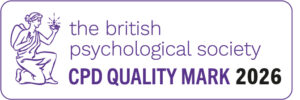From Safe Space to Brave Space
A Mindfulness Teacher’s Call to Compassionate Courage
Within mindfulness and compassion teaching, much emphasis is placed on creating safe space—a container of presence where participants are invited to arrive as they are. Yet the world in which we teach is not always safe. It is marked by grief, injustice, and collective trauma that enter the room with every participant. In such a climate, the invitation is not only to create safety, but to evolve that safety into brave space—a space where truth, vulnerability, and justice-centered compassion are welcomed and held with care. There is a deeper invitation available to us: to nurture such a profound inner safety that it becomes the foundation from which we step into the world with courage, truth, and compassionate action. Safe space, when embodied, naturally evolves into brave space.
The First Safe Space Is the One Within
Humans are hard-wired for safety. Before we can be brave, we must feel rooted enough to withstand discomfort, complexity, and difference.
Cultivating that inner refuge begins not with perfection, but with curiosity. With knowledge. With a willingness to see ourselves clearly.
A Short Guided Practice: From Safe to Brave
1. Find your posture—sitting, standing, or lying down. Place your hands softly where they feel at ease.
2. Notice. Breath, sensations, subtle shifts. No need to fix anything—just witness.
3. Inhale slowly through the nose. Fill to the top. Pause. Feel your strength.
Exhale gently through the mouth, drawing the belly inward. Pause. Begin again.
4. Return to a natural rhythm. Notice the transition between breaths. Let your body be a safe place.
5. On the next breath, bring your palms together at your heart. Imagine holding something fragile and sacred. Feel tenderness.
6. Open the palms toward your chest like a mirror. Let your hands reflect the truth and compassion living in your heart right now.
7. Gently close the palms again, holding your intention. Soften your body.
8. Open your eyes or let them brighten if already open. Inhale into the safe space you have created. Feel its presence inside you.
9. Let your hands lift above your head, then circle outward and back toward your heart—expanding your field of safety into a wider brave space.
Here, in this breath, bravery lives.

Teaching in Times of Collective Pain
Moments of societal crisis—especially those involving racialised violence and systemic injustice—bring heightened emotional charge into the learning space. Participants may arrive with grief, outrage, numbness, fear, or weariness. Teachers, too, carry their own responses. Rather than suppressing or bypassing these realities, mindful facilitation invites grounded acknowledgement.
This approach aligns with the spirit of “Brave Space” articulated by community facilitator Micky ScottBey Jones, whose poem An Invitation to Brave Space emphasises that while no space can be entirely safe, it can be held with courage, love, and collective responsibility. The poem encourages practitioners to stand together in the imperfect work of healing, rather than seeking protection through silence. (Link included in the resource section below.)
Naming Suffering Without Causing Harm
Injustice and systemic oppression cannot be addressed through silence. For many mindfulness teachers, especially those navigating racial dynamics or confronting their own social conditioning, there can be a hesitancy to speak. However, unacknowledged suffering often deepens harm.
A justice-informed teaching approach encourages:
Awareness before intervention — Teachers first attune to their internal responses to suffering and injustice.
Acknowledgment over avoidance — Naming the presence of pain in the room without centering personal discomfort.
Enquiry over certainty — Asking with humility rather than teaching from authority.
Compassionate witnessing — Allowing participants’ experiences to be held with respect and without defensiveness.
A brave space does not demand disclosure or emotional labor from marginalised participants. Instead, it creates conditions where what needs to be spoken can be spoken, and where silence can also be honored as a form of self-protection and agency.
Embodied Practice: Moving From Safe to Brave
Mindfulness teachers can support this transition through practices that ground participants in the body before engaging in dialogue. Simple forms of breath awareness, compassionate hand placement at the heart, or visualising safety within the body can establish enough internal stability to approach difficult truths with less reactivity.
Embodying safety allows teachers and participants alike to approach conversations about injustice not as intellectual debates but as felt experiences—rooted in humanity, dignity, and shared presence.
Toward a Compassionate Pedagogy of Justice
The work of building brave spaces in mindfulness teaching is not about perfection. It is about presence, responsibility, and an unwavering commitment to hold suffering with compassion while refusing to turn away from the systems that create it.
A justice-centered mindfulness pedagogy recognizes that:
Inner refuge supports outer courage.
Self-compassion fuels resilience for sustained engagement.
Naming suffering is a necessary step toward collective healing.
Brave space is co-created through humility, listening, and care.
As teachers, the invitation is to continue cultivating our own safe inner spaces while extending that safety outward in the form of courageous, compassionate action. In this way, mindfulness is not withdrawn from the world, but is deeply responsive to it.
Resources for Further Study and Teaching
▶ An Invitation to Brave Space — Micky ScottBey Jones
https://onbeing.org/poetry/an-invitation-to-brave-space/
A grounding poem widely used in justice-centered facilitation. Useful to open or close mindfulness sessions dealing with vulnerability and collective suffering.
▶ The Inner Work of Racial Justice — Rhonda V. Magee
https://www.rhondavmagee.com/
Explores how mindfulness and compassion practices can support racial awareness, healing, and social transformation. A key text for mindfulness teachers engaging with justice work.
▶ White Awake – Educational Resources on Race and Mindfulness
https://whiteawake.org/
Offers mindfulness-based workshops and resources specifically for those racialized as white to understand conditioning, privilege, and how to hold space responsibly.
▶ Anguish and Action – Obama Foundation
https://www.obama.org/anguish-and-action/
Provides educational resources and calls to action related to racial justice, designed to support those seeking to move from awareness into meaningful engagement.
▶ How I Learned to Stop Worrying and Love Talking About Race — TEDx Talk
(Search: title + TEDx)
A talk encouraging self-compassion and courage when engaging in conversations on race—helpful for teachers navigating fear of saying the wrong thing.
▶ Trauma-Informed Mindfulness Toolkit — Center for Trauma & Embodiment
https://www.traumasensitiveyoga.com/resources
A collection of resources on creating safer facilitation environments, integrating somatic awareness, and avoiding re-traumatization in mindfulness spaces.
▶ Rhonda Magee on Mindfulness and Race — On Being Interview
https://onbeing.org/programs/rhonda-magee-mindfulness-and-racial-healing/
A deeply reflective conversation on how inner practice meets systemic suffering, suitable for teacher inquiry and reflection.
▶ Black Liturgies — Cole Arthur Riley
https://www.instagram.com/blackliturgist/
A contemplative practice archive rooted in Black liberation theology and embodied spiritual care. Offers language for holding sorrow and resistance in sacred space.
▶ Mindfulness in Movement Spaces — BIPOC-Centered Facilitation Tools
(Search community-based organizations like The Nap Ministry, Healing Justice Lineages)
Provides examples of how rest, embodied presence, and mindfulness are being reclaimed in activist and BIPOC-led healing traditions.















